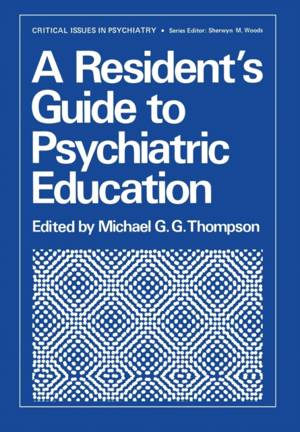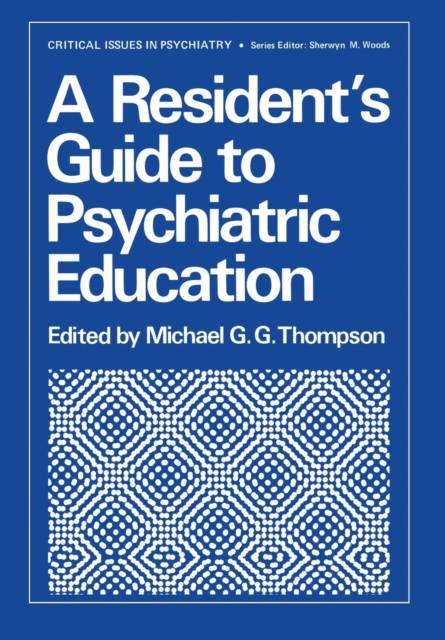
Bedankt voor het vertrouwen het afgelopen jaar! Om jou te bedanken bieden we GRATIS verzending (in België) aan op alles gedurende de hele maand januari.
- Afhalen na 1 uur in een winkel met voorraad
- In januari gratis thuislevering in België
- Ruim aanbod met 7 miljoen producten
Bedankt voor het vertrouwen het afgelopen jaar! Om jou te bedanken bieden we GRATIS verzending (in België) aan op alles gedurende de hele maand januari.
- Afhalen na 1 uur in een winkel met voorraad
- In januari gratis thuislevering in België
- Ruim aanbod met 7 miljoen producten
Zoeken
A Resident's Guide to Psychiatric Education
€ 106,95
+ 213 punten
Omschrijving
This is the inaugural volume of the new series: Critical Issues in Psychiatry: An Educational Series for Residents and Clinicians. It is an appropriate beginning, for this book represents a milestone in the evolution of psychiatric education. For the first time, there will now be a single place where one can find a compre- hensive collection of educational goals and objectives to define the broad spectrum of knowledge and skills essential for general and child psychiatry. This collection does not represent the bias of a single educator or program. Rather, it consists of a consensually validated ranking of relative importance for each educational goal and objective as determined by a large and international sampling of ex- perienced psychiatric educators, as well as an editorial board with some of the most distinguished names in psychiatric education. It is even possible to tell at a glance whether the ranked level of importance is the same or different within several national groups, for example Canadians vs. Americans. This book is intended for all students of psychiatry. It is particularly valuable to residents in training, but equally so for experienced clinicians preparing for Board examination or simply attending to the process of continuing education and intellectual renewal. While it might well be used by an institution to delineate the dimensions of a training program in psychiatry, it is intended primarily for the self-evaluation and self-monitoring of one's growth as a psychiatrist.
Specificaties
Betrokkenen
- Uitgeverij:
Inhoud
- Aantal bladzijden:
- 274
- Taal:
- Engels
- Reeks:
Eigenschappen
- Productcode (EAN):
- 9781461581970
- Verschijningsdatum:
- 12/12/2012
- Uitvoering:
- Paperback
- Formaat:
- Trade paperback (VS)
- Afmetingen:
- 170 mm x 244 mm
- Gewicht:
- 467 g

Alleen bij Standaard Boekhandel
+ 213 punten op je klantenkaart van Standaard Boekhandel
Beoordelingen
We publiceren alleen reviews die voldoen aan de voorwaarden voor reviews. Bekijk onze voorwaarden voor reviews.








